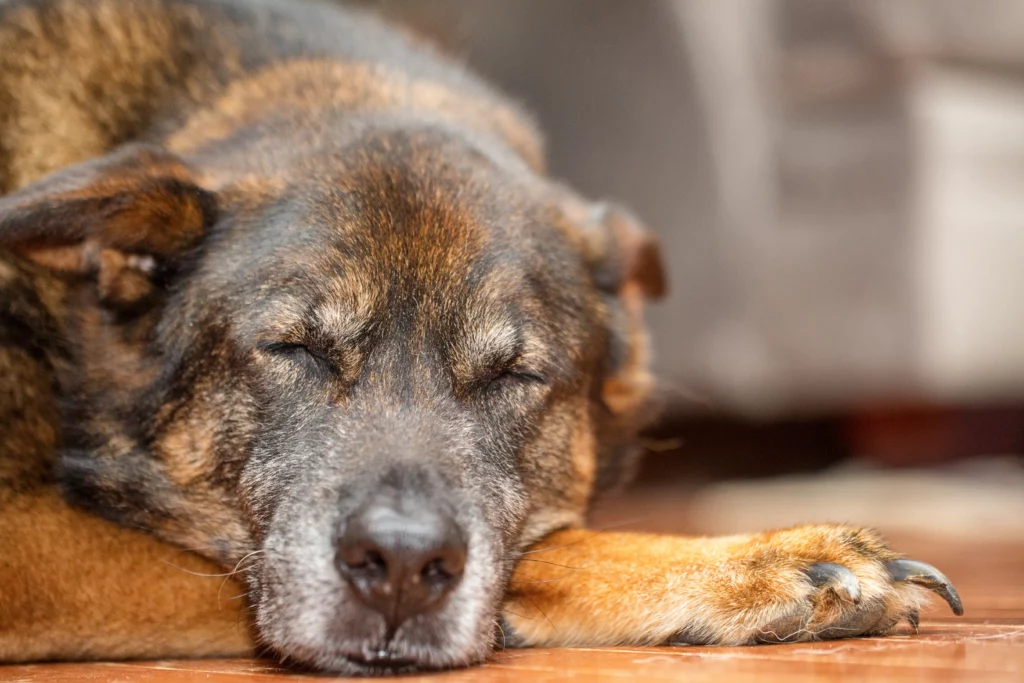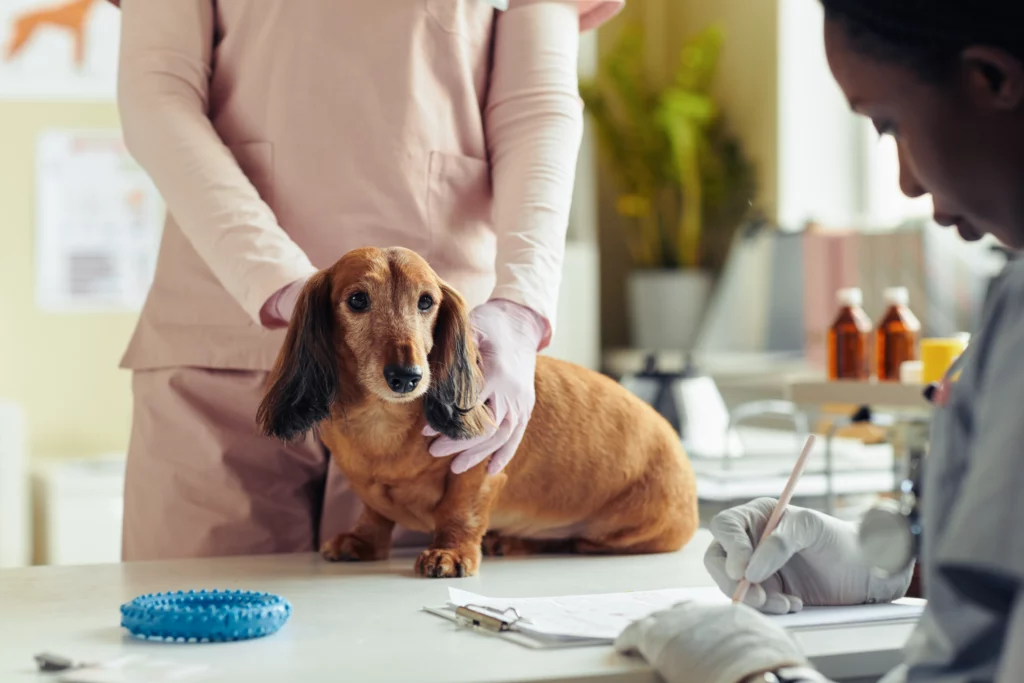There comes a moment when you start noticing the face of your best friend droopy. As your companion ages, their care changes.
Optimize their health and comfort for their golden years by reading this post and learning how to care for senior dogs.

The aging process of each dog differs depending on its individual characteristics - size, breed, genetics, nutrition, and environment play a part in determining how quickly the animal ages.
Larger breeds tend to show signs of seniority much earlier than small breeds;
As your pet dog ages, it may experience a range of degenerative conditions, such as arthritis which can affect its mobility and cause them to slow down.
Even find it hard to walk for extended periods, struggle to move up and down stairs, or have difficulty getting into and out of cars.
Dental diseases at an early age untreated may present problems as they age. Decayed teeth could impair your dog's eating habits and lead to weight loss. Without proper preventive care, senior dogs may even be missing teeth.
Older dogs risk weight gain from declining activities. Age-related metabolism also influences. Access their body condition to determine if
Accessing your pet’s body condition tells you if they are overweight. View their body from above; their waist should be behind their ribs, and the side view of their stomach should tuck up while the ribs are visible. Consider seeking a veterinarian for an accurate examination.
A heavier state fuels health problems like arthritis and heart disease. The guidance of a vet can help determine daily calorie requirements and adjust feeding amounts.
An overview of their health helps to stay on the healthy track. Protect their wellness and provide them comfort as they age.
Change in the pace of senior dogs comes with age, but if they seem stiff or limping - arthritis could be a sign. The breakdown of cartilage in the joints causes pain and inflammation while decreasing movement. Some of the indications of arthritis in senior dogs include:
A forgetful and anxious pet could suffer from cognitive changes.
It's possible that some cognitive decline is an aspect of aging or that other health conditions, such as vision loss, could contribute to the onset of cognitive dysfunction syndrome (CDS) in senior dogs, which is known as the canine equivalent of Alzheimer's disease.
CDS diagnosis focuses on specific behavioral changes, such as house soiling or learning and memory problems, increased anxiety, disorientation or confusion, and nighttime restlessness.
Studies evaluating the biochemical and anatomic components of aging in dogs have indicated some neurological changes that could impact cognitive and behavioral functions. Further research has linked such changes to the accumulation of oxidative damage in brain cells. Specifically, brain cells appear vulnerable to the harmful effects of oxygen-free radicals.
These findings suggest that the biological processes relating to brain aging and behavior in senior dogs may begin as early as 7 to 8 years old.
The advancing age affects the skin and coat health of your pet. Cellular atrophy increases in the epidermis and dermis, and follicles - resulting in hair loss areas. The skin also loses elasticity and is less pliable.
As dogs age, they may experience the loss of melanocytes in hair follicles and a subsequent slowdown in the production of the enzyme tyrosinase.
It may lead to white hairs, often visible around the muzzle and face of elderly dogs.
Moreover, older dogs could have issues with sebum production, leading to scaly skin and a less lustrous hair coat that appears dry and lackluster.
Explore AniViva® Pet Series to enhance the coat health of your best friend.
With age, a dog's reaction time can slow down. Changes in vision, hearing, and olfaction may arise.
In senior dogs, the most common eye change they experience is nuclear (lenticular) sclerosis. It appears as a bilateral bluish-gray haziness in the lens nucleus caused by the increasing density of lens fibers and the refractive index.
Though sometimes mistaken for cataracts, nuclear sclerosis often does not affect a dog's vision - except in severe cases. It is common for aging dogs to experience gradual night vision loss; however, many owners and veterinarians overlook this symptom until diminishing hearing sets in, highlighting the importance of hearing over vision in dogs.
Vision Loss in Old Dogs
Age-related hearing loss caused by cochlear degeneration is a common issue for old dogs, and it can look similar to what humans experience. This hearing impairment typically does not present any direct health risks, but owners may worry about their dog's safety and well-being. In some cases, age-related changes in cognition can cause hearing loss.
Hearing Loss in Old Dogs
A professional examination of your pet will help for better assessment and proper care.
Urinary incontinence is the weakening of muscle controlling the bladder’s opening. An old dog might go during the night, dribble while walking, or fail to hold it in as before.
Medication or an increase in bathroom breaks might help. Worst-case scenario, they have to use a diaper.
Other possible causes exist, such as urinary tract infections or bladder stones, and visiting your vet will help with diagnosis.
Be aware of kidney disease too. It happens when kidneys no longer filter waste products from a dog’s blood, increasing water intake and thus more urine.

As dogs age, they may experience several health concerns affecting their quality of life. Owners need to be aware of these issues and take steps to ensure their dog stays healthy and happy well into their senior years.
If you liked this article, we suggest you read 6 Easy Steps For Dog Grooming at Home.
Discover why our products are top-of-the-line and how they can nourish your pet’s skin health.



